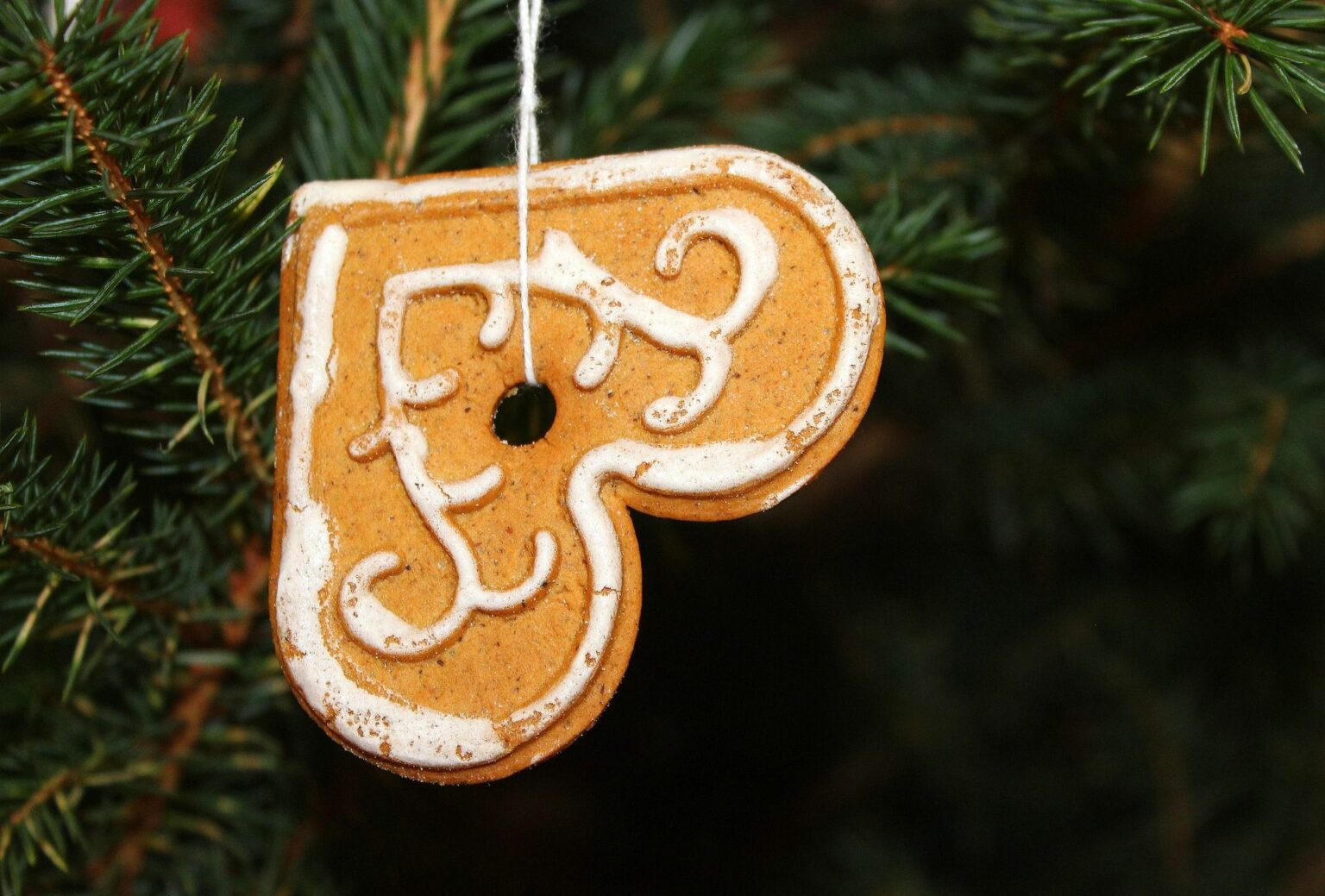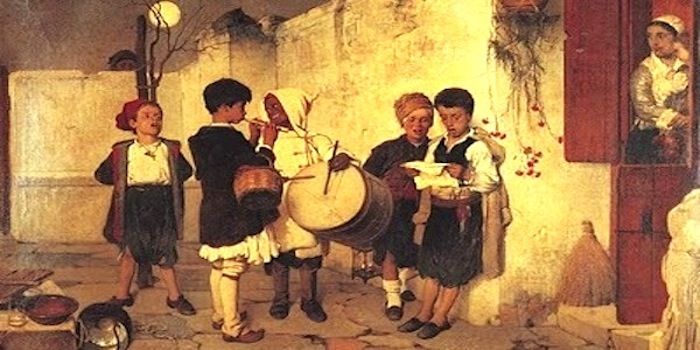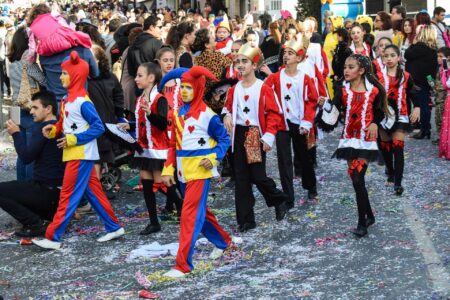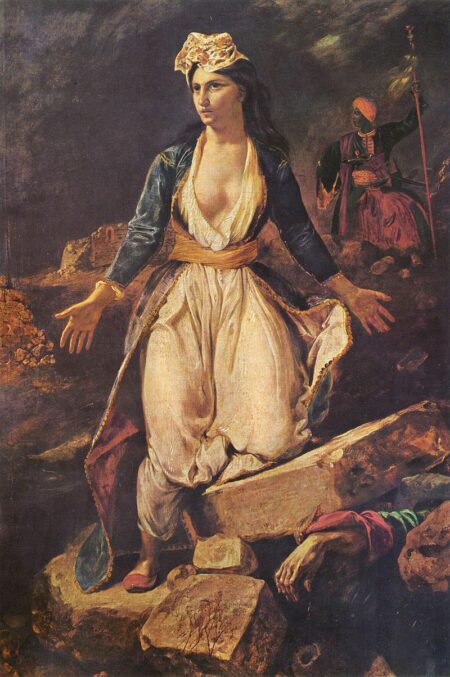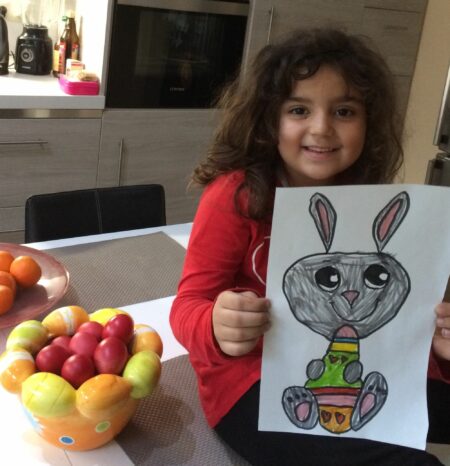Every holiday in Greece is celebrated with lots of food, symbols, and traditions. This is the same for welcoming the New Year. In this post, I have listed the most important New Year traditions in Greece.
New Year traditions in Greece: Celebrating the name day of Agios Vassilis
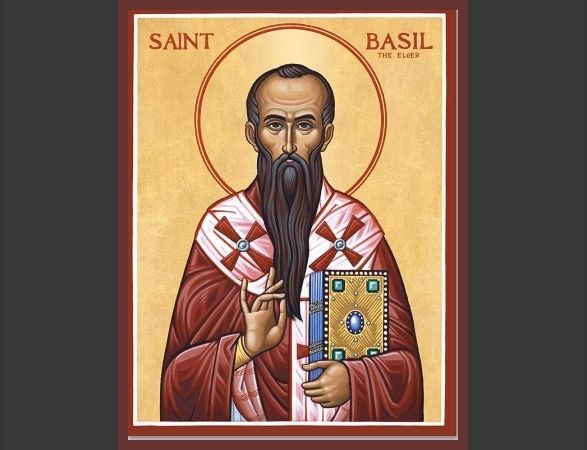
The most important of all New Year Traditions in Greece is the name day of Saint Basil or Agios Vassilis, the Greek Santa. Saint Basil arrives a week after Christmas and brings presents for the children on New Year’s Eve.
Basil the Great was born 330 AD and is one of the forefathers of the Greek Orthodox Church. There are many similarities with Saint Nicholas (the first Santa). They were both bishops and known for their kindheartedness, their compassion and their help to the unfortunate and homeless.
Agios Vassilis donated his wealth to the poor and is considered the founder of the first hospitals and orphanages. He died on January first and his name day is celebrated on this day.
Vasilopita or New Year’s lucky cake

You will see many traditional sweets and cakes in bakeries everywhere during the holiday season in Greece. There is only that is specifically created for New Year: the Vasilopita or Greek New Year’s cake. The tradition of the New Year’s cake is connected to Saint Basil and therefore also called King Pie. This cake is made of a variety of dough and appears in different forms depending on the Greek region and family tradition.
Inside the cake, a coin – the flouri – is hidden. The person that finds the coin will have good luck and good fortune for the year ahead. The Vasilopita is sliced traditionally representing the cross and this is traditionally done after midnight to bring good luck and blessings to the house.
The connection of Vasilopita and Saint Basil
I was wondering how this cake is connected to Saint Basil. Researched gave me different stories. Some say that Saint Basil called on the citizens of his town Caesarea to raise a ransom payment to stop the siege of the city. Each citizen handed over his gold or jewelry. When the ransom was collected, the enemy was embarrassed the act of collective given and called off the siege.
Saint Basil had to return the unpaid ransom to the citizens but had no idea which items belonged to which family. He baked all the jewelry into loaves of bread and distributed them. By a miracle, each citizen received their exact share. In other stories, it is Saint Basil’s attempt to give charity to the poor without embarrassing them or trying to hide his giving to the poor from the king or emperor.
If you want to make your own New Year’s cake, check this Vasilopita recipe.
Kalanta singing | New Year Carols
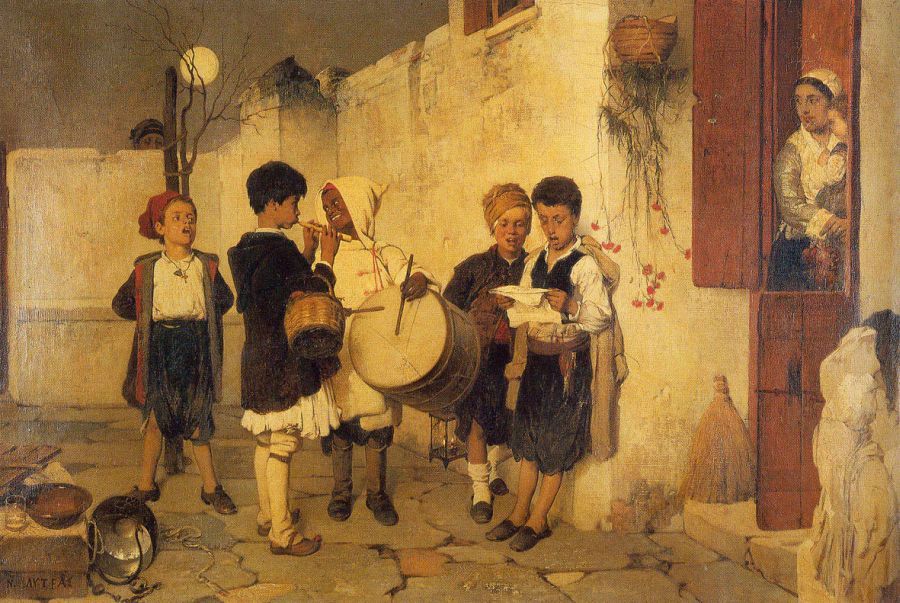
My apartment’s doorbell never rings more often than during the holiday season in Greece. And certainly this year my kids have been going around the neighbourhood again the singing of the Kalanta.
These traditional Greek Christmas Carols are sung on the day before Christmas and on 31 December. Children go from house to house playing a triangle (in the old days also a drum) and singing traditional Greek Christmas songs. If they sing well, they are rewarded with money or a sweet. In the past, they would also be carrying a boat, a very old custom in the Greek islands.
In Crete, children sometimes played the Lyra, a Greek string instrument. In the past, children received sweets, walnuts, dried fruits and biscuits instead of money. In some villages in Greece, children collected money for their local school. The money would be handed over to the school teacher to buy books and other materials. The singing of the children is considered to bring good luck.
New Year traditions in Greece: Good luck and anything related
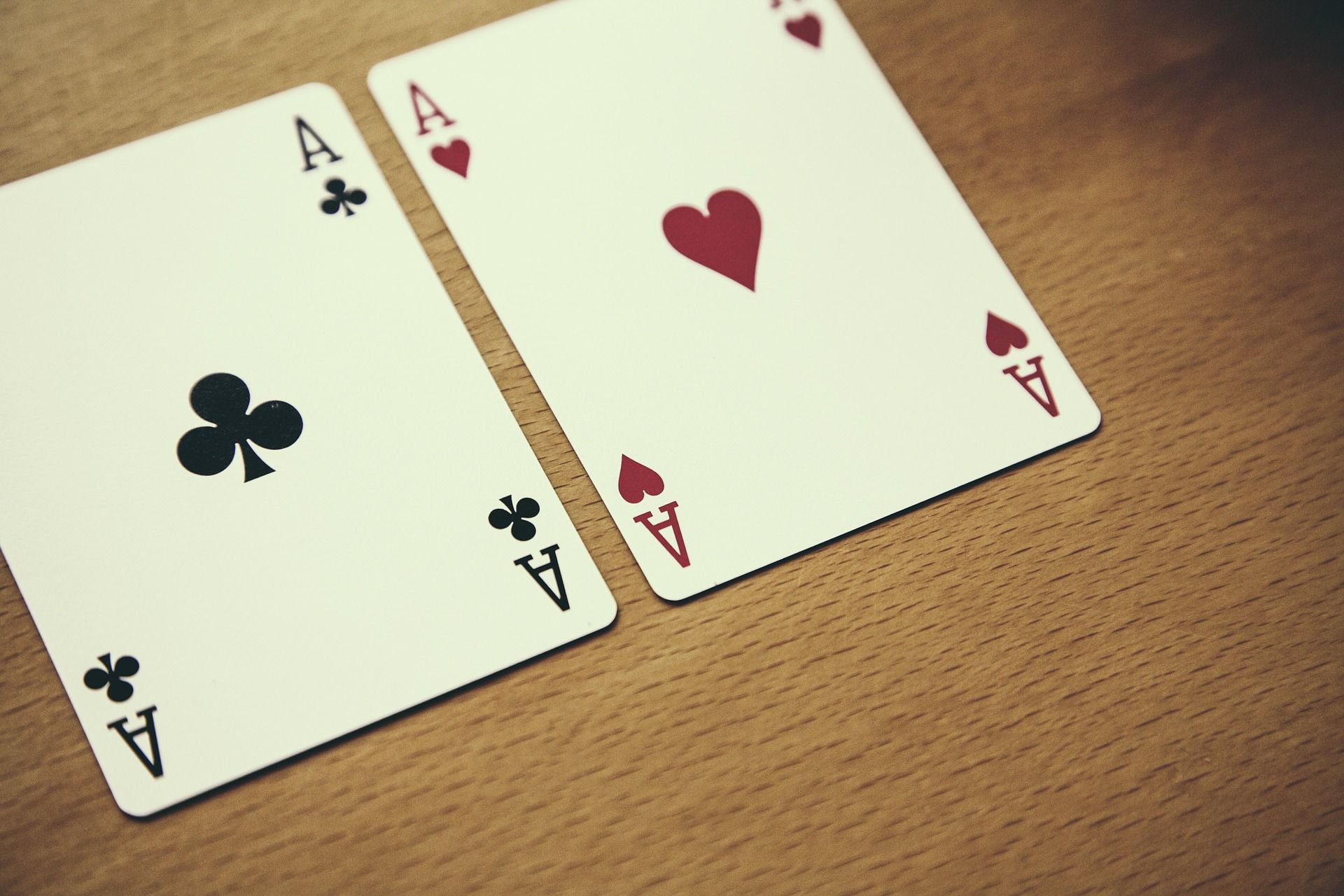
Good luck plays a very important role in more traditions of the holiday season in Greece. On New Year’s Eve, families get together at home and they often play card games for good luck. The games can go on for hours and end around midnight. The state lottery is very popular during the holiday season in Greece. Rolling dice is another favourite of the New Year traditions in Greece.
Other symbols of good luck are the pomegranate. The fruit is an ancient symbol for good luck and fertility and can be found hanging at the door. By tradition, it can be smashed on the floor for good luck at midnight. In some parts of Greece, it is an onion that will bring good luck. And did you know that on the Cycladic islands it is a north wind or a dove?!
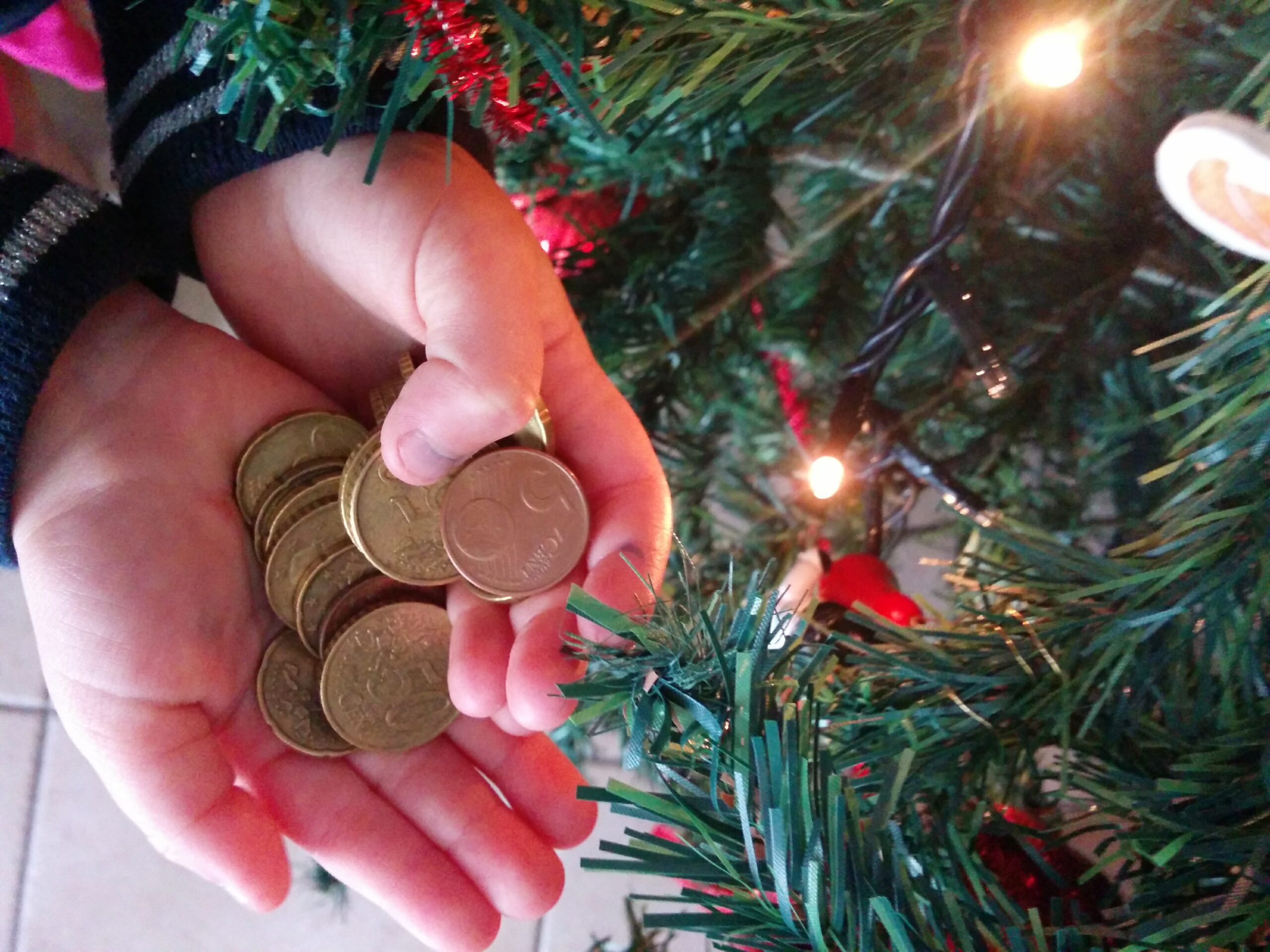
The release of the Kallikantzaroi
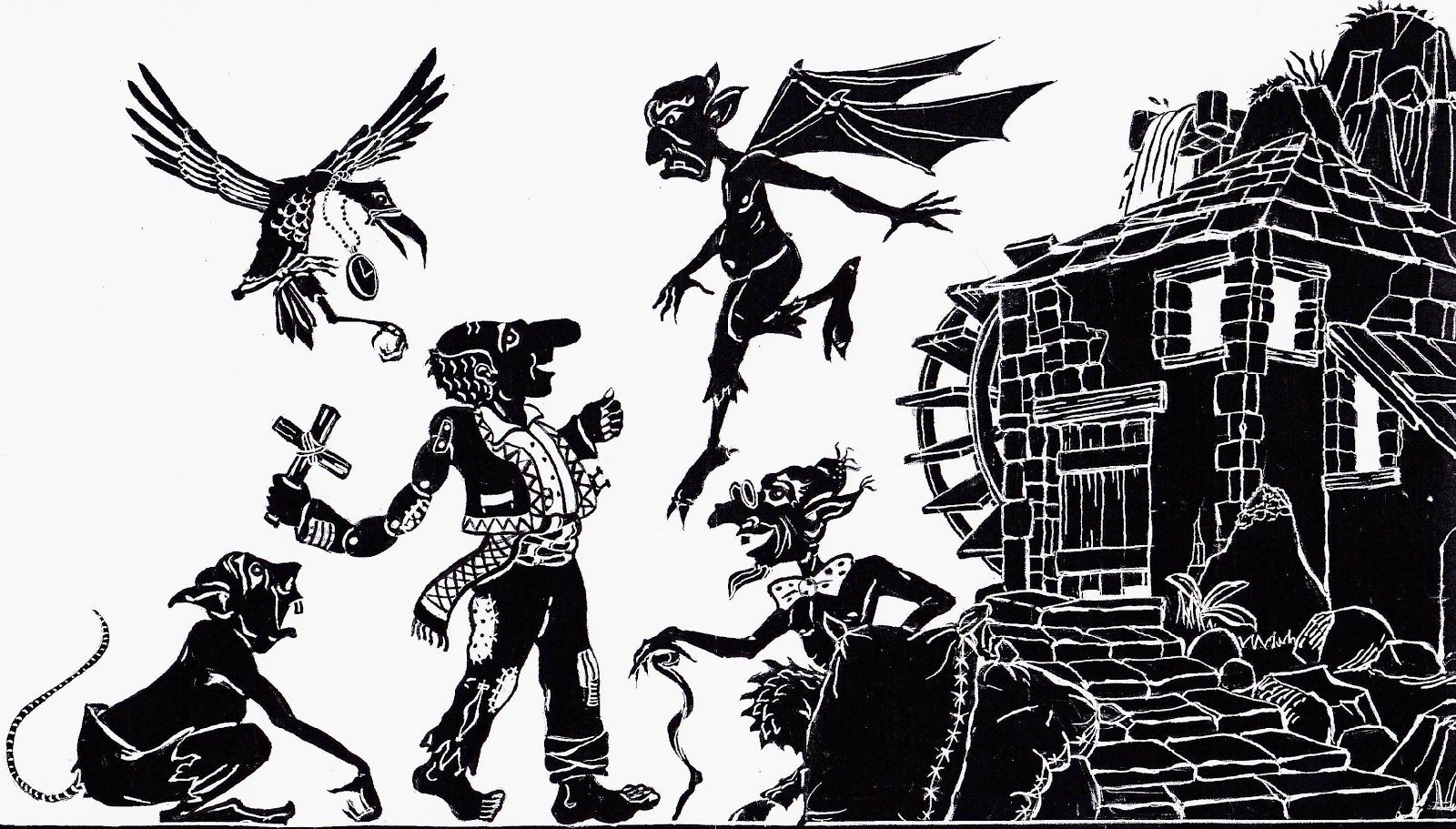
Finally, at midnight on New Year’s Eve, the windows of the house are opened to let the Kallikantzaroi out, these are the evil spirits or Christmas goblins. These Kallikantzaroi emerge from the centre of the earth and slip into people’s homes through the fireplace. They are more troublemakers than harmful and believed to do things such as extinguishing fires, ride on people’s backs, braid horse’s tails, and sour the milk. Kallikantzaroi only appear during the 12 days between Christmas and Epiphany on 6 January. Having said that, we have never seen one!
The celebration of Epiphany
The New Year traditions, in Greece, end with the celebration of Epiphany. Epiphany, known as “Theophania” in Greece, is celebrated on January 6th and marks the baptism of Jesus Christ in the Jordan River. It is one of the most significant religious holidays in Greece, filled with unique customs and traditions.
My children always look forward to singing the “kalanta” on the morning before Epiphany.
On the day of Epiphany itself, is the Blessing of the Waters. People gather at rivers, lakes, and seas, where a priest throws a Holy Cross into the water. Brave individuals then dive into the chilly waters to retrieve the cross, a ritual believed to bring blessings and good fortune for the year.
In addition to these customs, homes are often blessed with holy water, and there are processions and church services held throughout the country. The holiday is a time for families to come together, share meals, and celebrate their faith and heritage.
Happy New Year or Kali Chronia!
Related posts:


